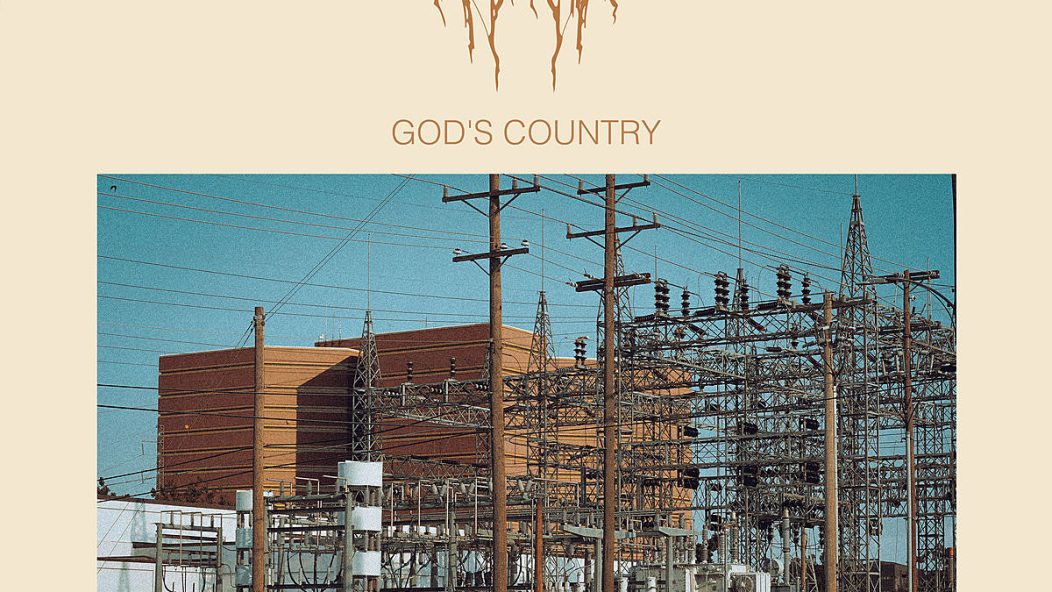
Chat Pile Take a Grimy, Cathartic Stroll Through "God’s Country" (Album Review)
What is noise rock’s game? We enjoy music in a personal shorthand that helps us understand what we’re hearing: black metal’s manacles & misanthropy, post rock’s fuzz and sentencesassongtitles–noise rock though typically proves more elusive, escaping easy codification of its subject matter, T-shirt designs, and precise musical borders. Because of this, noise rock stalks uneasily around your neighbourhood like a mongrel, its form grafted with various limbs by those who’ve sought to play it. Because of this, noise rock is exciting.
Oklahoma City’s Chat Pile are almost certainly a noise rock band, yet on their debut album God’s Country, noise rock is the starting point, not the finish line. Its nine songs break down grunge, ’90s alternative rock, and nu-metal into a bubbling, oil-slicked soup. Their version of noise rock is hyper-local, drawing inspiration from the contradictions and falsehoods observed in their surroundings; living among the skeletons of the American Rust Belt’s gutted industries, and the accumulated piles of hazardous waste from which the band take their name.
…
…
It’s the marriage of these two tenets, form and context, that make God’s Country a special record. Lead single “Slaughterhouse” in turn whimpers and chokes over a downtuned pulse and piston-precise drumming, containing lyrics that are part sermon and part instruction on how to efficiently and dispassionately end a life. When it’s over, you can smell the grease on your palms. Elsewhere on mid-album keystone “Anywhere,” Raygun Busch’s rolling vocal embodies both Steve Albini at his most sneering, and a travelling salesman accosting the listener with rambling tales of romantic failures at the bar where you’d planned to have a quiet beer & leave, all while spinning a story of spontaneous murder in visceral and panicked detail.
For all you’ve probably never seen Chat Pile play a show, their record arrives both via taste-making heavy music but don’t call it metal label The Flenser, and under the intense expectations of an online following that have picked apart the band’s first two EPs for both social commentary and meme fodder. The cool thing is that as far as the naked eye can see, both the seriousness and the goofiness are genuine: the band are still tie-dyeing random handfuls of shirts to sell on Bandcamp, and posting endless variations of grimace_smoking_weed.jpeg on social media. They’ve seemingly mastered the contemporary art of making confrontational, ugly music without having to pretend to be in a melodramatically terrible mood every single day. They’ve been shrewd in the run up to the album, releasing a split with Portrayal Of Guilt in a severe case of a tour waiting to happen, and it worked: their record release shows are selling out as quickly as the shirts.
What Chat Pile tap into is a relatable, tar pit gloom. In their account of the present we’ve realised we’re sinking past the point of being able to pull our arms free, to offer meaningful resistance, to have utility, and yet no matter how inhuman these songs can sound there is warmth here. Chat Pile are not celebrating the end as per rote aggressive music nihilism, they’re fucking gutted to be living through it, and that desperation proves an emotional hook that makes it easy to commit these songs to your heart. If you live outside of North America you may need to look up exactly what a Sirloin Stockade is, but hearing it roared despondently over and over during the chorus of “The Mask,” in the context of narrative the band creates over the course of the album – your best guess won’t be far from the truth. This philosophy extends to God’s Country‘s artwork, in line with the band’s prior releases, there’s a sense of the deliberate rejection of desaturated forests and other fantastical elements. Instead, we have the suggestion that the real world is more multifaceted and complex and is presented as such here in the freeways and industrial complexes that are pushed to the fore; simultaneously antiquated, redundant and strangely beautiful.
Noise rock offers a broad palette of sounds and textures to play with and Chat Pile are able to harness this not only to the benefit of individual songs but in the storyline and sequencing of the album, pirouetting through bleached out anthems (“Pamela,” “Anywhere”) sweaty aggression (“Tropical Beaches inc.,” “Wicked Puppet Dance”) and exactly one pause for breath (“I Don’t Care If I Burn”) which, in the context of the song that follows could not have been better placed–can album reviews be considered to have spoilers? Perhaps not, but either way, it’s best to discover that last track for yourself. Good luck with it.
Confrontational art sometimes seems a bizarre avenue to walk for the sake of passion or leisure, to wilfully invite unpleasantness upon a body and soul that in all likeliness has a day job, rising bills, racist relatives etc., but when we can see the creators clearly, when they articulate their voices as loudly as Chat Pile do on God’s Country, our shared sense of sadness and the contemplation of whether we ever get to move on can give us welcome pause. Back at the chorus of “Anywhere”, Busch sings again and again: “It’s the sound of a fucking gun, it’s the sound of your world collapsing.” Maybe he’s right.
–Luke Jackson
…
God’s Country releases today via The Flenser.










